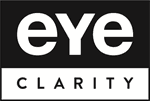- Home
- TESTING Eye Care
- TESTING Eye Health
Categories
Browse by Tag
TESTING Eye Health

YOUR VISION IS FOR LIFE
Regardless of your age or physical health, quality of vision is fundamental to our quality of life. Our eyes are different and evolves constantly as we age. It’s essential to regularly take care of your vision, whether it be through eye tests or maintaining a healthy lifestyle. At eyeclarity we are commited to understanding your specific visual needs and help give you the best vision for as many years as posible.
HOW OFTEN SHOULD YOU GET AN EYE TEST?

Infant eye health can have lifelong consequences — that’s why it’s so crucial to have the best care possible for common eye diseases. Screening should begin sooner if any eye problems are suspected.
Proper eye care may help treat the many common eye conditions, such as nearsightedness and astigmatism, that are diagnosed during childhood. All children should have vision screening in a pediatrician's or family practitioner's office around the time when they learn the alphabet.
With appropriate care, contact lenses are often a successful form of vision correction during the formative years of teens. Contact lenses should be discontinued if any of signs or symptoms occur

Contact lenses and glasses provide excellent correction of changing refractive error as the eye completes its growth in the early 20s. Surgical approaches to the correction of refractive error are an option once refractive error stabilizes. Between ages 20 and 39: A complete eye exam should be done every 5 to 10 years. Adults who wear contact lenses need yearly eye exams.
The possibility of being diagnosed with a condition like presbyopia becomes more prevalent as your eye health faces new challenges in your 40s and 50s. Certain eye symptoms or disorders may require more frequent exams Adults over age 40 who have no risk factors or ongoing eye conditions should still be screened every 2 to 4 years for adults ages 40 - 54
Age-related conditions such as cataracts and presbyopia may be treated with the right care to allow you to continue living a life of good vision. Adults over 60+ should have eye tests very 1 to 3 years.



